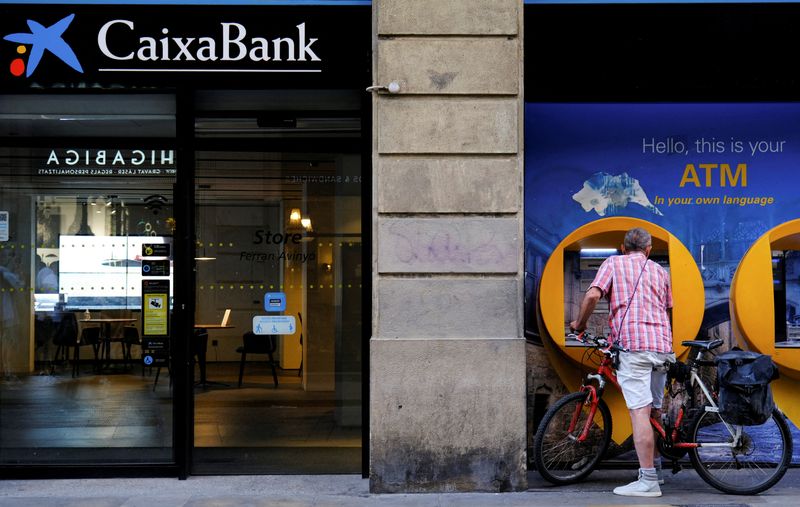By Jesús Aguado
MADRID (Reuters) - Spain's competition watchdog urged political parties to give this institution better tools to look into potential anticompetitive practices between banks when setting deposit rates for savers, its chair Cani Fernandez said on Friday.
Spanish banks offer the lowest household deposit rates among the euro zone's large economies, igniting demands from the government, supervisors and clients to pass on higher interest rates for savers.
Fernandez did not say if banks had effectively engaged in any explicit collusion or agreement to not raise deposit rates but added that the CNMC did not have the tools to prove the existence of agreements between lenders.
"If there is neither collusive contact nor an agreement, we cannot act, we do not have the tools," she said at a financial event in northern Spanish city of Santander (BME:SAN).
The head of the CNMC added that in a transparent market there was no need to reach an agreement because "the mere observation of what the others do is enough to make decisions, this is called adapting smartly to the behaviour of your competitors."
"A tacit collusion is a hole in our system of tools to tackle (this issue) in markets with little competition," Fernandez said.
She added that other European countries, such as Germany and the UK, had better tools to look into these commercial practices.
"Now that the political parties are designing their electoral manifestos, I ask them to think about it because other countries have it," Fernandez said, ahead of general elections next month.
Her comments come after Spanish banks on Tuesday pushed back against a government call to start paying higher interest rates on deposits.

Lenders maintain that a lower deposit remuneration is partly the result of excess liquidity in the sector and deny claims of a lack of competition in Spain's relatively concentrated banking sector.
On Friday, the Bank of Spain Governor Pablo Hernandez de Cos said it was up to the CNMC to look into that matter.